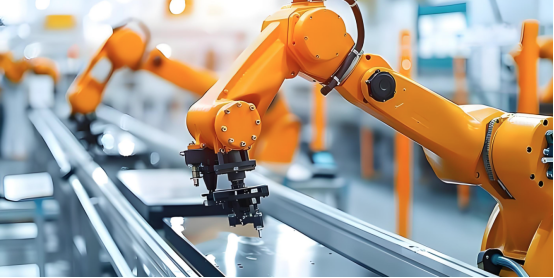Fully automatic mechanical arms, also known as robotic arms, offer numerous advantages across various industries, including manufacturing, healthcare, logistics, and more. Here are some key benefits:
- High Precision and Accuracy
- Robotic arms can perform tasks with extremely high precision (up to micrometers), reducing errors in assembly, welding, or surgical procedures.
- Ideal for repetitive tasks requiring consistent accuracy.
- Increased Productivity
- Operate 24/7 without fatigue, significantly boosting production rates.
- Faster cycle times compared to manual labor.
- Cost Efficiency
- Reduce labor costs in the long run by automating repetitive tasks.
- Minimize material waste due to precision operations.
- Improved Safety
- Handle hazardous tasks (e.g., working with toxic chemicals, high
- temperatures, or heavy loads) without risking human workers.
- Reduce workplace injuries in high-risk environments.
- Flexibility and Adaptability
- Can be reprogrammed for different tasks (e.g., welding, painting, packaging).
- Equipped with AI and machine learning for adaptive decision-making.
- Consistency in Quality
- Maintain uniform product quality without human variability.
- Crucial in industries like automotive, electronics, and pharmaceuticals.
- Space and Resource Optimization
- Compact designs allow efficient use of workspace.
- Can work in confined or hard-to-reach areas.
- Integration with Smart Systems
- Compatible with IoT, AI, and Industry 4.0 for real-time monitoring and optimization.
- Can collaborate with other machines (Cobots – Collaborative Robots).
- Reduction in Human Error
- Eliminate mistakes caused by fatigue, distraction, or lack of skill.
- Enhanced Speed and Efficiency
- Perform complex operations faster than humans.
- Optimize production lines for maximum throughput.
Applications:
- Manufacturing: Assembly, welding, painting.
- Healthcare: Robotic surgery, lab automation.
- Logistics: Sorting, palletizing, warehouse automation.
- Agriculture: Harvesting, packaging.
- Food Industry: Precision cutting, packaging.
Future Trends:
- AI-driven autonomous decision-making.
- Soft robotics for delicate tasks.
- Increased human-robot collaboration (Cobots).
Fully automatic mechanical arms are revolutionizing industries by improving efficiency, safety, and precision while reducing costs. Their adaptability makes them indispensable in modern automation.

